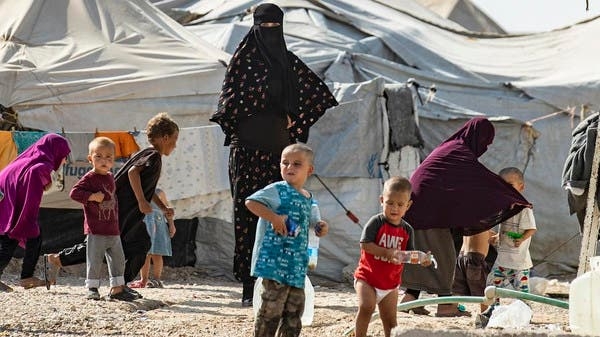In its new report “Bring me back to Canada”, the international non-governmental organization Human Rights Watch (HRW) focuses on Canadians held in north-eastern Syria for alleged Islamic State (IS) links.
Covering the period from February 2019 to May 2020, the research includes interviews with Canadians held in the al-Hol and Ain Issa detention camps for IS suspects including their family members. Most of the interviewed requested that HRW withhold their personal data that could lead to their identification -such as names and locations -, fearing harassment. The interviews were conducted in person or by telephone.
The report aims at highlighting the inhuman and life-threatening conditions in which these persons are detained in northeast Syria and the challenges of repatriating these foreign fighters and their families.
In March 2019, the United States (US) led coalition -of which Canada is a member- defeated the IS in the city of Baghouz, the last stronghold of the so called caliphate. In addition to capturing Syrians, the Syrian Democratic Forces (SDF) apprehended thousands of men, women and children from 60 countries. The detainees include 47 Canadians, among which are 26 children and 13 women, who have not yet been charged with a crime or brought before a judge to review the legality of their detention. The Kurdish-led Autonomous Administration under whose authority the foreigners are held, has repeatedly called on the foreign countries to repatriate their nationals or to provide the Administration with funds to investigate IS crimes. After having met with Canadian officials in 2018, the Autonomous Administration reports that Canada has yet to bring home its citizens, including a 5-year-old orphan who lost her parents in Baghouz during an air strike.
According to HRW, around 100,000 IS suspects and their families are detained in camps along the borders with Turkey and Iraq. The detainees are guarded by the SDF -which is backed by the US-led coalition- despite it having no prior experience in prison management. Currently, there are about 14,000 foreigners from more than 60 countries, including 8,000 children and 4,000 women. Like many other foreigners, Canadians are detained unlawfully with the legality of their detention not having been reviewed by a judge. In conclusion, “their detentions without a judicial review amount to a form of collective punishment, particularly for suspect’s detained family members”.
The spread of the novel Coronavirus has further aggravated the conditions of foreign fighters and their families. At the time of writing, only six cases of Covid-19 were reported in northeast Syria and none involved camps or prisons. However, during three visits in al-Hol camp - which holds 65,000 persons - HRW found a lack of hygiene and medical supplies and concluded that it was impossible to practice social distancing. Moreover the camp suffers intermittent water shortages since Turkey began periodically interrupting the supply at a water station serving 460,000 people in areas controlled by the Autonomous Administration, despite several appeals by the Kurds for more funding and water resources to care for the detainees. The Autonomous Administration did not respond to HRW’s requests of May and June for updates on conditions in the camps and prisons.
The report also highlights Canada’s inaction regarding repatriating its citizens and the provision of consular assistance. Canadian authorities have neither provided effective consular assistance to Canadian detainees, despite international legal obligations towards its own nationals. Also the United Nations High Commissioner for Human Rights Michelle Bachelet has called on all countries to assume responsibility for their nationals detained in Syria as “it is perfectly legitimate for States to factor in national security considerations, however these cannot not be made at the expense of human rights protections”. However, Canadian officials cited diplomatic, practical, and legal reasons for the government's inaction. HRW underlines that under international human rights law, no person must be deprived of the right to enter their own county. Consequently, Canada must not create obstacles, including refusing to provide an emergency passport or other travel document, to citizens’ efforts to exercise their right to return. The report also recalls that every Canadian citizen has the right to enter Canada as laid down in the Canadian Charter of Rights and Freedoms but “the Canadian government appears to interpret this right to apply only to citizens who present themselves at a Canadian port of entry, or who request a passport or travel document at one of its foreign consulates”. Yet Canadians detained in northeast Syria could not do so without first having to escape from locked camps and prisons, crossing a war zone and borders with no identification papers in order to reach the closest consulates, which are hundreds of kilometers away in Turkey or the Iraqi Region of Kurdistan. The unlawful detention in deeply degrading conditions also poses a significant risk to the Global Coalition’s operation against IS as “IS retains a smuggling network in the camps, bringing supplies and moving family members in and out”. This could generate additional recruits and violence as violations of human rights are not only unlawful, they are also drivers of terrorism.
Concluding, HRW recommends the government of Canada to repatriate, as a matter of urgency, all its citizens detained in northeast Syria, giving priority to children, and to work with humanitarian agencies and local authorities to improve living conditions in those camps and prisons. HRW also urges the Autonomous Authority to bring detained foreign nationals before a court to determine the legality of their detention and to release those whose detention has not been upheld by a court. Furthermore, it strongly recommends improving detention conditions to tackle overcrowding, insufficient outdoor time and inadequate healthcare, in line with the United Nations Standard Minimum Rules for the Treatment of Prisoners (Mandela Rules). Finally, the report calls the Autonomous Authority to only detain children as an “exceptional measure of last resort and ensure any detained children are held separately from adults”.
To learn more, please read:
https://www.hrw.org/sites/default/files/media_2020/06/canada0620_web_1.pdf
https://www.ohchr.org/Documents/Issues/Terrorism/UNSRsPublicJurisdictionAnalysis2020.pdf
https://www.hrw.org/news/2019/07/23/syria-dire-conditions-isis-suspects-families
https://www.hrw.org/news/2019/06/21/western-europe-must-repatriate-its-isis-fighters-and-families
Author: Silvia Luminati







